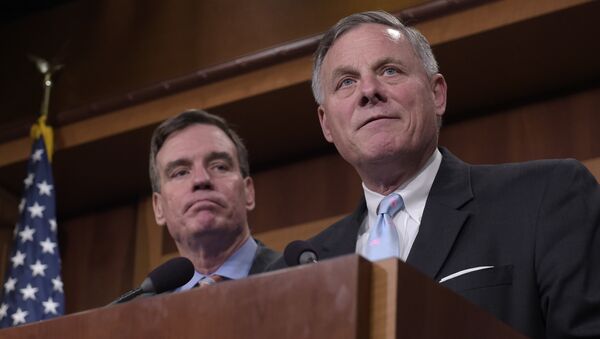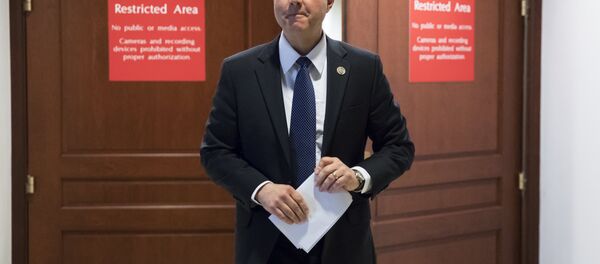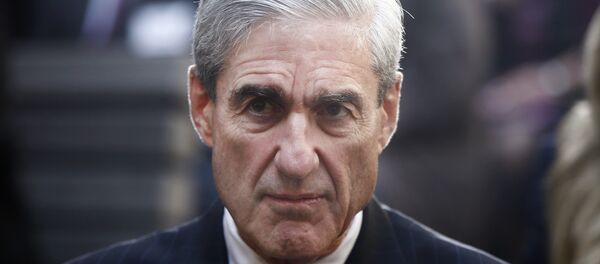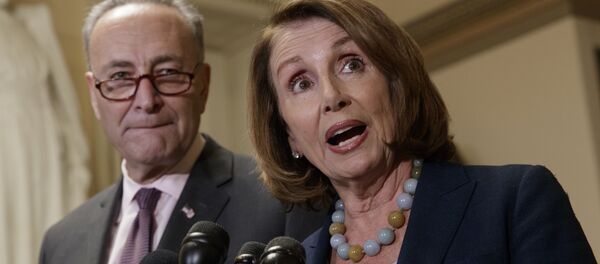Two years and over 200 interviews later, the Senate Intelligence Committee has yet to find any proof of collusion between Trump's 2016 presidential campaign and the Russian government to help him win. The House of Representatives' parallel investigation came to the same conclusion last year, although Democrats have recently reopened it now that they're in charge of that chamber again, Sputnik reported.
"There is no factual evidence of collusion between the Trump campaign and Russia," committee chair Sen. Richard Burr told NBC Tuesday. "We know we're getting to the bottom of the barrel because there're not new questions that we're searching for answers to."
The Russian government has consistently denied claims of collusion as baseless.
Similarly, Special Counsel Robert Mueller's probe is winding down and hasn't prosecuted a single person in connection with such a conspiracy.
None of that seems to matter to ranking committee member Sen. Mark Warner (D-VA), who said he disagreed with Burr's characterization, noting that "there's never been a campaign in American history… that people affiliated with the campaign had as many ties with Russia as the Trump campaign did."
Radio Sputnik's Loud and Clear spoke about the circumstances with Daniel Lazare, a journalist and author of three books: "The Frozen Republic," "The Velvet Coup" and "America's Undeclared War."
"Essentially, the entire mainstream media was caught up in a giant conspiracy tale, which is in its own way as outlandish as anything that the JFK [John F. Kennedy assassination] buffs came up with, or the theories about Mossad causing 9/11. It's just bonkers, but the entire media, the entire press, the New York Times, the Washington Post, CNN, etc., etc., bought into this whole thing completely and totally."
In doing so, Lazare said, "they ignored all the other, more interesting aspects of this whole episode, such as, what was the role of the intelligence agencies? What were they up to in spreading these tales? What was their real agenda?"
However, Lazare said he did think there was collusion: "between the Democrats, the press and the intelligence agencies, who were essentially trying to fight off any change in foreign policy, especially with regard to two very important countries: Russia and Syria."
"I mean, Trump [when he] came into office, he effectively represented the greatest challenge to US foreign policy orthodoxy in decades. He wanted a rapprochement with Russia, and he believed that US intervention in Syria was non-productive — counterproductive, in fact. So, Trump wanted to break with US orthodoxy in these two areas, and that threw the entire foreign policy establishment into a panic. And the only way they could explain it, despite their manifest failures, was that somehow Russia was making Trump say this."
"They can't admit that not only did [Hillary Clinton's] campaign fail in 2016, but their foreign policy failed, too. I mean, US foreign policy in Ukraine, in the Middle East, has been a disaster, a complete disaster. The US has grossly over-extended, its strategy is just deeply flawed, and Trump, for all his craziness, at least had the sense to point up these huge shortcomings, and the establishment will never forgive him for that."
The author told hosts Brian Becker and John Kiriakou that he saw parallels between Russiagate and "The Protocols of the Elders of Zion," a fake pamphlet published in the early 20th century by the Tsarist-era Russian police, purported to be a guide to the vast, secret network Jews used to control politics worldwide.
"The liberals imagine that Putin sort-of commands this vast occult worldwide conspiracy, in which he just has to wiggle his fingers for all kinds of wars to break out, presidential candidates to do his bidding," Lazare said. "He's an occult master, in their eyes."
"The return to these kinds of conspiratorial models shows that in times of stress, people tend to resort to these old tropes, these old conspiracy tales."





